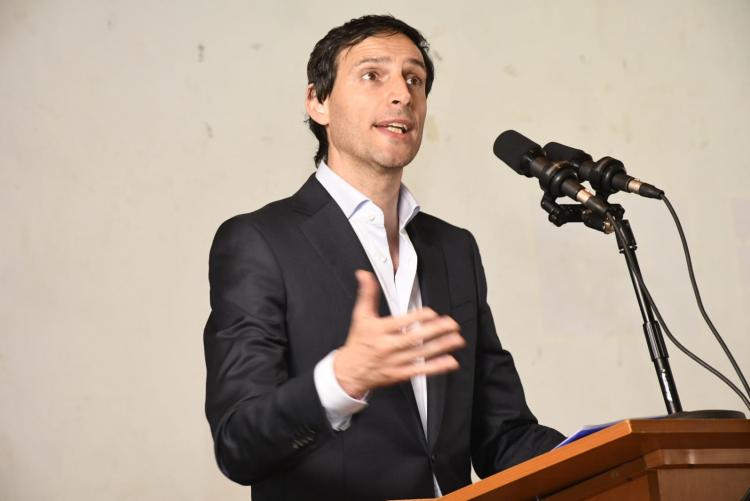As the world gears up for the 28th Conference of the Parties (COP28) to the United Nations Framework Convention on Climate Change (UNFCCC), Kenya's significance as a strategic African partner in addressing the global climate crisis has come into sharp focus. The recent visit by European Commissioner for Climate Action, Wopke Hoekstra, to Kenya on November 6 and 7 underscored the country's crucial role in shaping a successful COP28 outcome.
In his address at the University of Nairobi, Chiromo campus on Tuesday7th November 2023, Commissioner Hoekstra highlighted Kenya's remarkable progress in embracing green and digital transitions, emphasizing the European Union's commitment to supporting these initiatives. He commended Kenya's leadership in renewable energy adoption, acknowledging the country's exceptional efforts in increasing its renewable energy share.
Hoekstra stressed the importance of scientific evidence and data-driven approaches in combating climate change, emphasizing that "science is crystal clear on this." He advocated for mobilizing all stakeholders, including communities, to contribute solutions and address the impending consequences of climate change.
Recognizing the urgency of securing financial resources for the green transition, Hoekstra urged the international community to explore all avenues of funding. He also emphasized the crucial role of youth in climate action, stating, "We will truly get nowhere without young people. The voice of African youth is crucial for climate action."
In response, the University of Nairobi, represented by Vice Chancellor Prof. Stephen Kiama, reiterated its dedication to climate research and action. Kiama highlighted the establishment of two research centers, the Institute of Climate Change and Adaptation (ICCA) and the Wangari Maathai Institute for Peace and Environmental Studies, as global hubs for climate research, open to collaboration with the European Union.
The Deputy Vice Chancellor for Research, Innovation, and Extension, Prof. Margaret Hutchinson, emphasized the university's efforts to bridge the gap between academia and practical implementation of climate change mitigation strategies.
Kenya's role in the global climate emergency cannot be overstated. The country has been disproportionately affected by climate change, with temperatures rising at double the average global rate. Despite this, Kenya stands as a beacon of hope, demonstrating its commitment to renewable energy, research, and youth engagement in climate action.
As COP28 approaches, Kenya's leadership and collaboration with international partners, including the European Union, will be instrumental in achieving a successful outcome and paving the way for a more sustainable and resilient future.
- Log in to post comments

